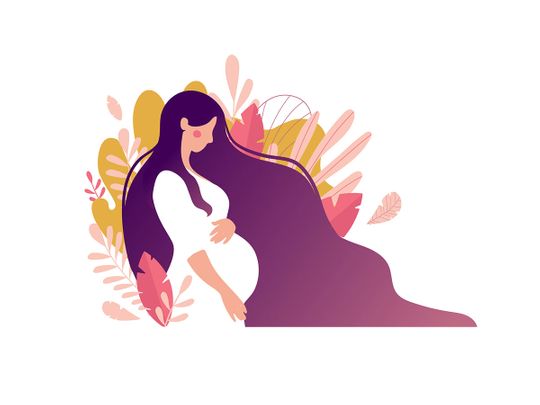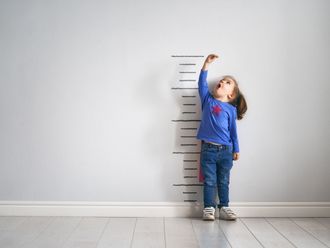
The age of parenthood is rising each year; for some it’s a matter of choice – think financial constraints, career goals – while for others, it’s a question of fertility issues that require medical intervention. American magazine Forbes.com reports that in developed countries, the average first-time mum is 31 years old.
While it is possible to have a baby even when you are older – Indian woman Jivunben Rabari became a mum at the age of 70 – it usually requires strategy. “The average age of child bringing has steadily increased over a period of time. The concept and practice is multifactorial, involving social factors as well as advent of latest technology such as ART (artificial reproductive techniques). And while the possibility of having the baby at relatively advanced age brings hope, it also calls for caution,” Dr Mahnaz Fazal, Specialist Obstetrics and Gynecology, Medcare Medical Centre Rashidiya says.
“Pregnancy at both ends of the spectrum, that is underage pregnancy and older age pregnancy, requires more vigilant ante natal surveillance as compare to the normal expected bracket of child bearing age. When we talk of advance maternal age we are referring to pregnancy occurring after 35 years of age. But after 45 years it is referred to as VAMA that is “very advance maternal age”. Although the relationship between advancing maternal age and increased risks of adverse maternal and infant outcomes is well established, if proper counseling is done before conception and vigilant ante natal, delivery and post-partum period is covered, then a healthy and normal outcome for the baby and mother is very much expected,” she adds.
What are some of the risks of later-in-life conception?
“As the age advances the risk for chromosomal anomalies increase,” says Fazal. “For example, Trisomy 21 commonly known as Down Syndrome has a risk of 1:1350 in a 25-year-old woman but dramatically increases to 1:350 at age 35 years, 1:200 at 40 years and 1:35 by 45 years. Likewise, the chances of having miscarriages, preterm delivery, gestational diabetes, pregnancy associates hypertension, intra uterine growth restriction babies (IUGR), still birth etc. all increase many folds.” The risk of post birth fatalities also spike.
When deciding on a late pregnancy, it’s important to talk to a doctor about advice regarding:
- Risk to mother and baby: The risk of complications increases as the age of the parent does.
- Folic acid 400ug or 5mg depending on risk factors: In some cases, such as if the mother has anemia, she may need a bigger dose of folic acid to help the pregnancy along.
- Medication if any: If a pre-existing condition such as diabetes is part of the profile, it will require more vigilant monitoring and, perhaps, more medication.
- Review of medical condition if any: If there is a condition that’s under treatment, it’s essential that the status of the issue is re-tested for the most up-to-date information.
Thinking of becoming a mum but age concern giving you the blues? Don’t worry – studies point to some benefits. One study published in the European Journal of Developmental Psychology found that children with older mothers -- regardless of their parents' background, education and finances -- have better language skills and have fewer behavioural, social and emotional problems.
While another one, conducted by Danish institute Aarhus University in 2017 and quoted by research hub Science Daily, found that older mothers are less likely to punish and scold their children while raising them, and that the children have fewer behavioural, social and emotional difficulties. Professor Dion Sommer from Aarhus BSS, who was one of the researchers, was quoted as saying: "We know that people become more mentally flexible with age, are more tolerant of other people and thrive better emotionally themselves. That's why psychological maturity may explain why older mothers do not scold and physically discipline their children as much. This style of parenting can thereby contribute to a positive psychosocial environment which affects the children's upbringing.”.
UAE-based American expat Cassie Destino, who had twins months shy of her 40th birthday, says age offered her perspective. “I understand and have taken the time to understand more about childhood development [than I would have if I were younger],” she explains.
Saudi Arabia-based Mauritian and Gulf News reader Shamila H, who had twins at 40, concurs, saying age has factored into how she is bring up her babies. She explains: “if I had been pregnant, like, I would say, maybe even 10 years ago, things would have been different, you know, I wouldn't have taken the same care as I took during my pregnancy.”
Age may prove to be a hiccup when planning parenthood, but with research, planning, constant vigilance and some counselling the journey can be both successful and happy.
Have a topic you'd like us to discuss? Write to us at parenting@gulfnews.com








